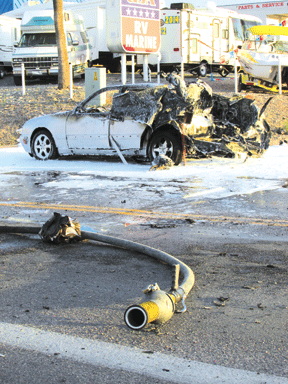Fireworks are a staple of celebrations around the world, especially during festive occasions like the Fourth of July. They light up the night sky with vibrant colors and dazzling patterns, evoking awe and joy among spectators. However, beneath their beauty lies a potential danger that can lead to tragic consequences if not handled responsibly. The misuse of fireworks has resulted in numerous accidents over the years, reminding us of the importance of safety precautions.
Recently, a devastating incident involving fireworks captured national attention when a man lost his life after placing a lit firework on his head. This shocking event serves as a stark reminder of the risks associated with improper handling of pyrotechnics. As communities gather to celebrate, it is crucial to understand what went wrong in this case and how similar tragedies can be prevented in the future.
Understanding the Fatal Mishap
The incident unfolded in Texas, where 43-year-old Pablo Ruiz tragically lost his life after a firework exploded prematurely. According to reports from the Bexar County Medical Examiner's Office, Ruiz had been enjoying the holiday with a friend, shooting off fireworks together. However, one of the fireworks misfired, leading to catastrophic results. Authorities arrived shortly after the explosion but were unable to save Ruiz, who succumbed to severe injuries.
This heartbreaking event highlights the unpredictable nature of fireworks and the critical need for caution. Even experienced users can encounter unexpected malfunctions, emphasizing the importance of adhering to safety guidelines at all times. By understanding the potential hazards, individuals can better protect themselves and others during celebrations.
Such incidents often occur due to a combination of factors, including user error, defective products, or failure to follow instructions. In Ruiz's case, the exact cause of the malfunction remains under investigation, but it underscores the necessity for vigilance when handling explosive materials. Public awareness campaigns and stricter regulations could help mitigate these risks moving forward.
Avoiding Dangerous Stunts
In South Carolina, another fatal accident occurred when Allen Ray McGrew decided to perform a dangerous stunt by lighting a firework on top of his head. At a block party, McGrew reportedly attempted to impress others by placing the ignited device on himself, resulting in massive head injuries. His wife later revealed that he placed the firework on his head to show off, illustrating the dangers of reckless behavior fueled by bravado.
Experts warn against engaging in such risky activities, as they significantly increase the likelihood of severe harm or death. Fireworks are designed to be launched into the air or explode safely away from people; using them in unconventional ways compromises their intended function and creates unnecessary danger. Education about proper usage is essential to prevent similar occurrences in the future.
Community leaders and law enforcement agencies play a vital role in promoting safe practices surrounding fireworks. By collaborating with local organizations, they can disseminate information about responsible handling and discourage unsafe behaviors. Encouraging open dialogue within families and peer groups also fosters an environment where safety takes precedence over spectacle.
Learning From Tragic Lessons
In Maine, Devon Staples became the first recorded fatality linked to fireworks since their legalization in 2012. The 22-year-old placed a fireworks mortar tube on his head before setting it off, leading to fatal injuries. State officials expressed concern over this unprecedented tragedy, highlighting the need for increased oversight and education regarding consumer-grade pyrotechnics.
While fireworks provide entertainment and cultural significance, their inherent dangers cannot be overlooked. Each year, emergency rooms across the country treat thousands of patients injured by fireworks, underscoring the urgency of addressing this issue comprehensively. Implementing comprehensive training programs and enforcing strict penalties for violations could deter unsafe practices and reduce accidents.
Ultimately, preventing future tragedies requires collective effort from manufacturers, regulators, educators, and individuals alike. By prioritizing safety above all else, we honor the memories of those who have fallen victim to fireworks-related incidents while ensuring safer celebrations for generations to come.

